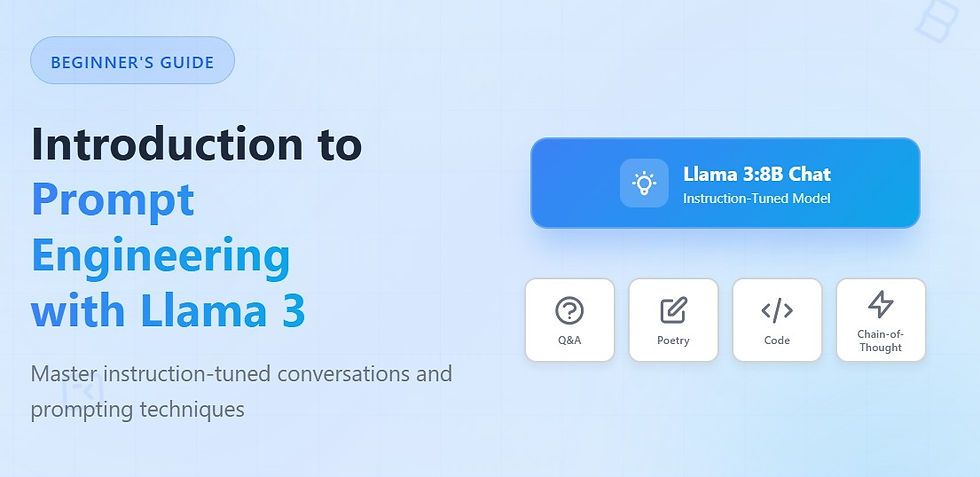Data Science Homework Help - NumPy
- Sep 5, 2019
- 3 min read

In this blog, we will learn all Data Science NumPy related topics which help to become a effective data scientist. Now a day data is very useful to find important information which help to growth the any data science related industry.
Here we will include top rated example, which help to learn python.
What is NumPy?
Numpy is the basic and a very powerful package for mathematical calculation working with data in python.
It is a Python library that provides a multidimensional array object, various derived objects (such as masked arrays and matrices).
It provides ndarray objects. By using 'ndarray' also known as array used to store multiple item of same data type.
Characteristics of "NumPy"
Here, NumPy is has many characteristics which is given below -
NumPy arrays have a fixed size at creation
The elements in a NumPy array are all required to be of the same data type, and thus will be the same size in memory
NumPy arrays facilitate advanced mathematical and other types of operations on large numbers of data.
How to import NumPy
import numpy as np
Creating a "NumPy" array
There are multiple ways to create NumPy but here we will learn one simple and currently useful way to create NumPy array.
Example:
"Jupyter notebook" output

Difference between "list" and "ndarray"
There are some minor differences between list and ndarray is that
1- ndarray perform vector operations but list does not perform it, means you can performed function at every item of array but not in list.
for example:
if you want to add something to the list-
>>> li+2 # show error
then it show error but in ndarray you can add 2 at every item of array.
>>> nparray+2 # where nparray take from example
Example:

2- size of ndarray is fixed and can not be change after it is created to do this another array is created but in list size is extended.
Data types in Numpy
float
int
bool
str
object
Control the memory allocations
To control memory allocations use of one which is given below -
float32, float64, int8, ‘int16, int32
Example: first creating create 2D array using list of list
Output by jupyter notebook:

Output with float and int: Convert to "int" and "float" data type

3- In numpy all item is same data type unlike list.
Example:
Output by jupyter notebook:

Array convert back to list
We can create array back to list - use tolist() to convert back to array
Example:
Output:

Action performed with array
In this we will performed some some important operation with array as -
Extracting row and column -
It start from index 0
Example:

But using list it show error -

numpy arrays support boolean indexing
Give boolean output when condition check -
For Example:
np = nparray > 4
Output using Jupyter notebook:

Reverse the rows and the whole array
In numpy we can reverse the rows of whole array -
nparray[::-1, ] #reverse only the row position
nparray[::-1, ::-1] #reverse both row and column position
Compute mean, min, max
Use these functions to find mean, min and max
nparray.mean()
nparray.max()
nparray.min()
Find min and max values row wise or column wise
np.amin(nparray, axis=0) # column wise minimum
np.amin(nparray, axis=1) # row wise minimum
Create a new array from an existing
You can also create array from an existing array in python numpy
Reshaping an array m×n to n×m shape
Array can be reshape in python numpy easily
Use reshape(n,m) functions
Example:
nparray.reshape(n,m)
Creating sequences using python numpy
To create sequence using python numpy.
We use arange(5) function to generate sequence.
Example:
nparray.arange(5)
Output look like that
[0, 1, 2, 3, 4, 5]
With step(gap):
nparray.arange(0, 9) # from 0 to 9
nparray.arange(0, 9, 2) # from 0 to 9 with gap 2
nparray.arange(0, 9, -1) # Decresing order
On working.....it is on working
Other Data Science related blogs:
If you like Codersarts blog and looking for Programming Assignment Help Service,Database Development Service,Web development service,Mobile App Development, Project help, Hire Software Developer,Programming tutors help and suggestion you can send mail at contact@codersarts.com.
Please write your suggestion in comment section below if you find anything incorrect in this blog post



Comments